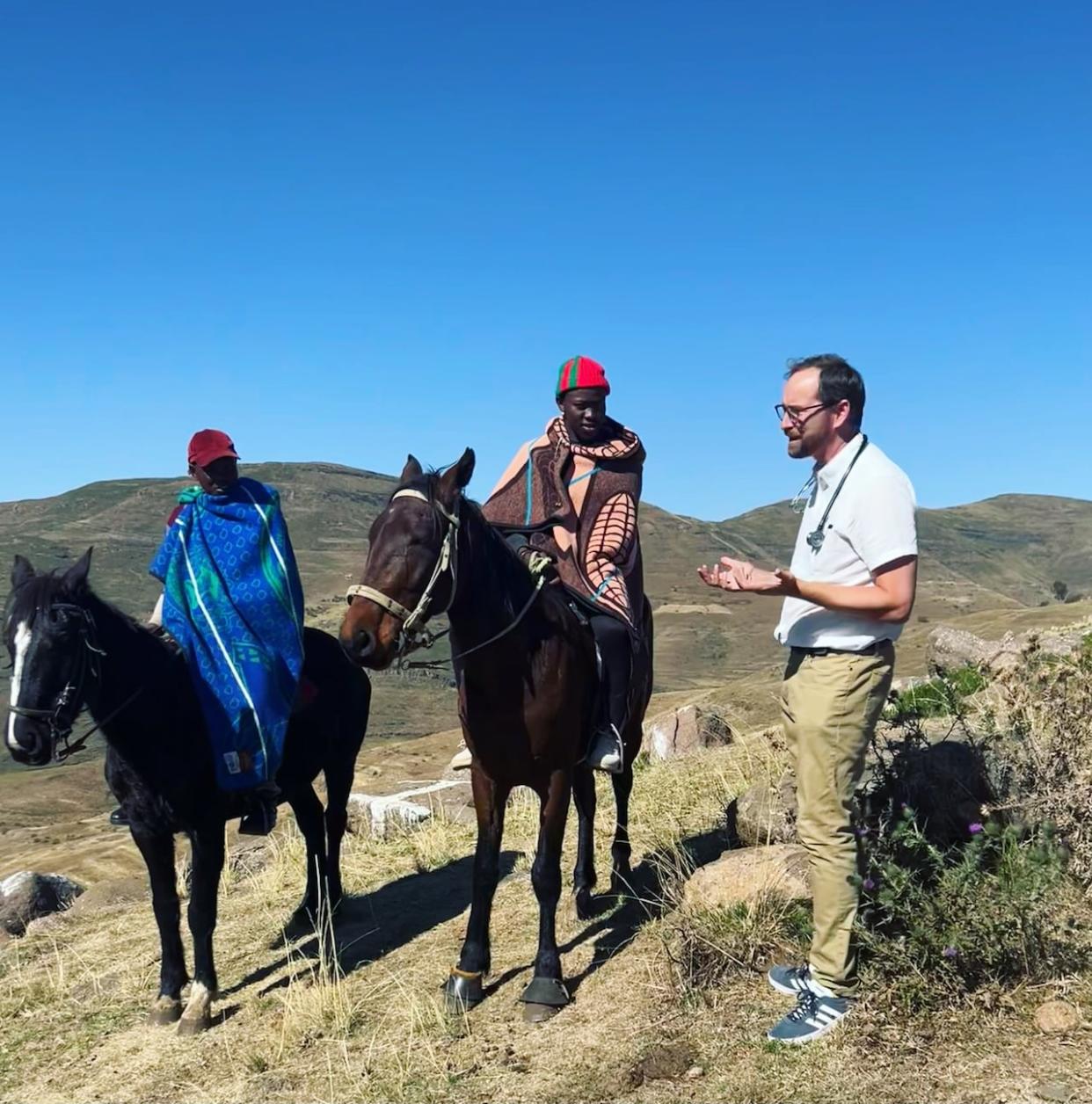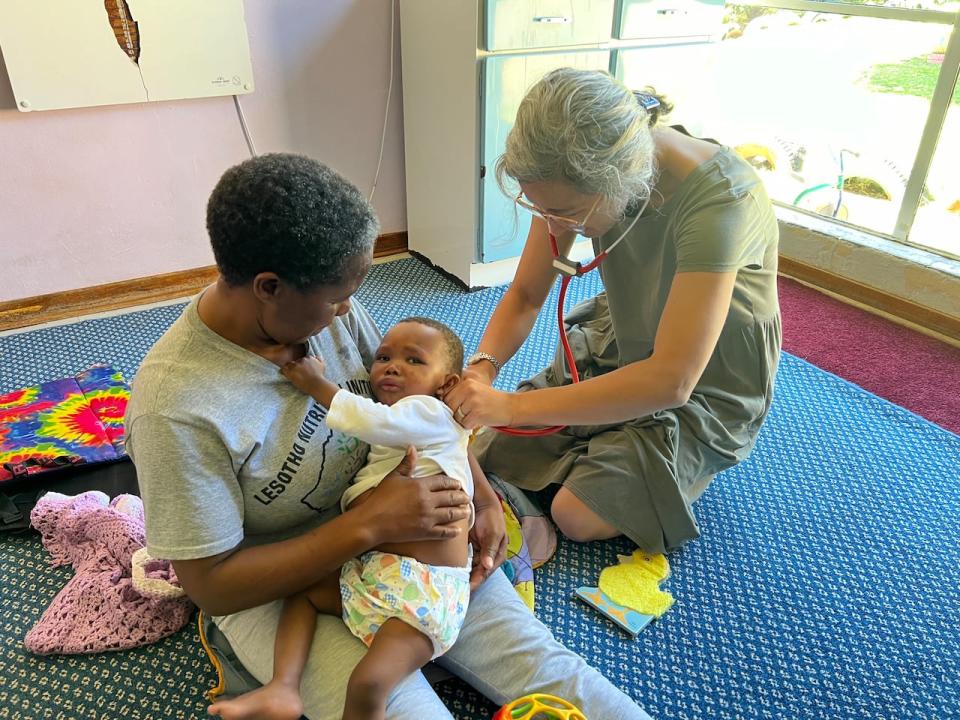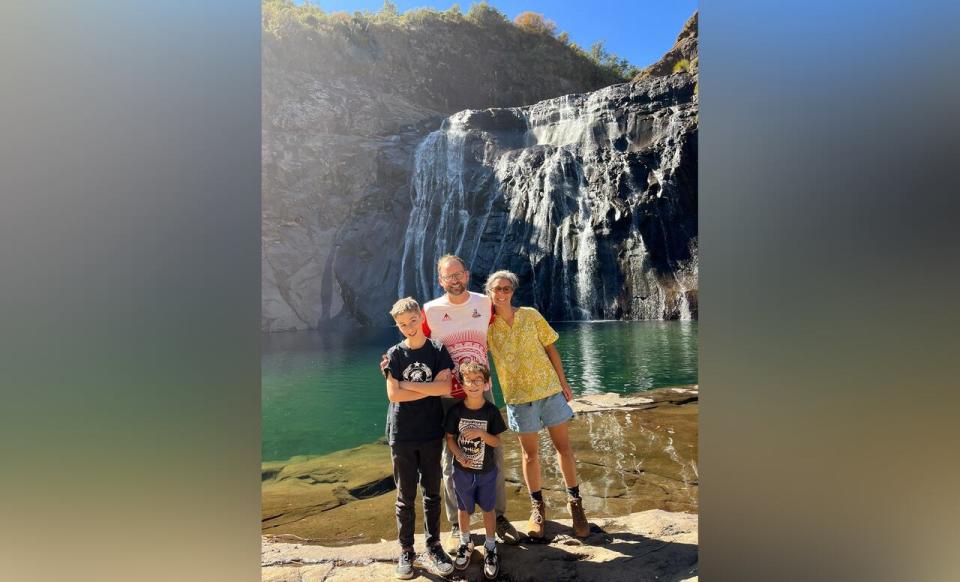Sask. doctor makes unusual house call while volunteering in southern Africa

Saskatoon doctor Ryan Meili recently made an unusual house call. Or more accurately, a horse call.
Earlier this year, Meili and his wife, pediatrician Mahli Brindamour, took their two kids along for a six-month volunteer placement in the southern African nation of Lesotho, where they worked with tuberculosis patients through the group Partners in Health.
When one man didn't show up on time for his appointment at the hospital, Meili asked around and learned the man had to travel 40 kilometres on horseback through steep mountain passes.
So Meili and the team hopped in an SUV, bumping along a treacherous, rocky road where they met the man halfway to give him his medication and do a checkup.
"We ended up doing the clinic visit on the side of a mountain, with the patient still on horseback, and just figured that was the best way to reach him where he was," Meili said.

Brindamour, a pediatrician, treats a baby during a recent six-month volunteer placement in the southern African country of Lesotho. (Submitted by Mahli Brindamour and Ryan Meili)
Meili — who was previously the leader of the provincial NDP before leaving politics in 2022 — and Brindamour are now back home in Saskatoon. The two doctors say they hope they were able to do some good.
They also say the experience also gave them new ideas for treating tuberculosis patients in northern Saskatchewan, where poverty, overcrowded housing and other factors have caused the disease to persist.
"The things we learned there, we hope to bring back here and try to apply to the programs that we are working with here [in Saskatchewan], because even though the challenges come from different routes, they're still quite similar," Brindamour said.
While the example of the patient on horseback was an extreme one, the two say they learned new ways to improvise in difficult conditions, and were inspired by the permanent staff and locals who lacked the resources of Canadian hospitals.
They also saw the value of non-medical interventions in the outcomes for tuberculosis patients, improving their quality of life and chance of surviving. That included access to healthy food, treating any other conditions, such as HIV or diabetes, and having a designated assistant to help get patients to their appointments and give them their medicine.
"It's not just about drugs and medicine, but also those upstream factors of trying to make sure people have decent nutrition, they have the supports they need, they have a safe place to stay, so that they can take care of their health and do so in a way that's going to actually work for them," Meili said.

Brindamour and Meili went with their two children to Lesotho, where the doctors volunteered in local hospitals for six months, treating tuberculosis patients. (Submitted by Mahli Brindamour and Ryan Meili)
Brindamour said it felt like a true partnership.
"We brought back a lot more than we were able to give," she said. "There are a lot of links to be made."


